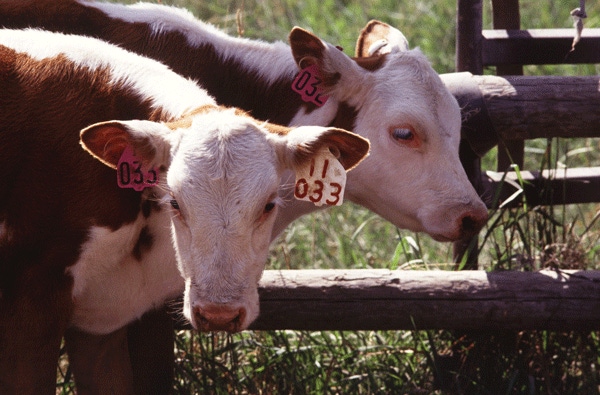
It’s back to square one for plaintiffs in a federal court case opposing new Country of Origin Labeling (COOL) rules, but officials say a U.S. District Judge's decision last week to deny a request for a preliminary injunction to stop USDA from implementing the new mandatory rules does not represent the end of the game.
"We have to remind everybody that this is one of many steps we are looking at to try to find relief from country of origin labeling. There are others,” reports Colin Woodall, National Cattlemen's Beef Association (NCBA) vice president of government affairs.
NCBA is one of nine organizations that joined together to file a lawsuit July 8 designed to stop USDA from going forward with plans to implement the new rules in the weeks ahead. Other plaintiffs include the American Association of Meat Processors, American Meat Institute, Canadian Cattlemen’s Association, Canadian Pork Council, National Pork Producers Council, North American Meat Association, Southwest Meat Association and Mexico’s National Confederation of Livestock Organizations.
This round of events related to COOL is but the latest in a string of developments since the COOL program was first authorized in 2009. The policy requires that most fresh foods, including meat, indicate the country or countries where the product was born, grown, raised and slaughtered on the product’s label.
But the policy has come under fire a number of times, starting with formal objections to the rules brought before the World Trade Organization (WTO) by the Canadian and Mexican governments, who argued the labeling program was unfair and in violation of North American Trade Agreement (NAFTA) guidelines.
If you are enjoying reading this article, please check out Southwest Farm Press Daily and receive the latest news right to your inbox.
In late July, WTO sided with sponsors of the complaint when they ordered USDA to revise labeling requirements for beef, pork, chicken and lamb in order to meet WTO compliance requirements. In response, USDA did revise the original rules concerning labeling of meat products, but plaintiffs argue those changes further complicate the original rules and require even more stringent labeling changes that will cost more and are discriminatory against Canadian and Mexican meat and livestock companies without providing any additional security to U.S. consumers.
Plaintiffs had asked for the preliminary injunction to stop USDA from implementing the new rules until the full lawsuit could be heard in court. They argued the rule exceeds the authority granted to USDA in the 2008 farm bill and is "arbitrary and capricious, offering little benefit to consumers while fundamentally altering the meat and poultry industry."
Some groups like the new rules, other do not
A Farm Press sister publication, BEEF magazine, is reporting Jon Wooster, U.S. Cattlemen’s Association (USCA) president, one of the groups who favor the USDA new rules, applauded the court's ruling last week.
“We, of course, are pleased with the court’s decision to deny the preliminary injunction requested by the plaintiffs. If the injunction had been granted, it would have ensured that the U.S. would be in violation of its trade obligations under the WTO," Wooster said.
USCA, along with the National Farmers Union (NFU), American Sheep Industry Association (ASIA), and the Consumer Federation of America (CFA), became interveners in the lawsuit last month, which gives them the ability to fully participate in the lawsuit.
In spite of denying the preliminary injunction last week, the American Meat Institute, one of the nine plaintiffs in the COOL case, believes several aspects of the court’s ruling are still susceptible to challenge in court and say a plan to consider a formal appeal is underway.
Woodall warns that without the temporary injunction, there is a good chance Canada and Mexico will consider initiating a process of economic retaliation against the U.S. over what they believe are illegal rules offered up by USDA. He says another option is to look at a new farm bill as a way to "get this fixed."
According to an agricultural economist at Kansas State University, the revised policy requires packers to list individually the countries where the animal was born, raised and slaughtered. For instance, a revised label on a package of beef sirloin steak might state, “Born in Mexico, raised and slaughtered in the United States.” Before, the label for that same product more simply read, “Product of Mexico and the United States.”
“More segregation (in the labels) will lead to more cost,” said Glynn Tonsor, an associate professor of agricultural economics at KSU, and she says the end result could be higher consumer prices.
U.S. Agriculture Secretary Tom Vilsack said in July that his agency still plans on implementing the final rules in November unless the preliminary injunction was granted.
Other articles of interest:
COOL itself is not ruled illegal by WTO but finds label wording to be…
New Oklahoma Cattlemen Association leader optimistic about state cattle…
About the Author(s)
You May Also Like




